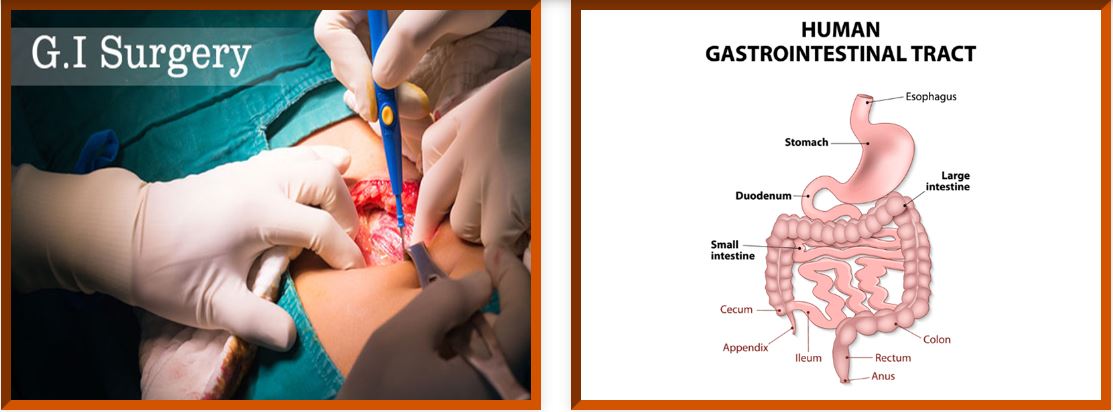Gastrointestinal surgery is a branch of surgery which deals with diseases of the parts of the body involved in digestion. This includes the esophagus, stomach, small intestine, large intestine, and rectum. It also includes the liver, gallbladder, pancreas and spleen. Surgery may be used to remove a cancerous or noncancerous growth or damaged part of the body, such as the intestine. It may also be used to repair a problem like a hernia (a hole or weak spot in the wall of the abdomen).
Appendicitis : When the appendix becomes infected and inflamed, it may be removed (appendectomy).
Colon cancer and other gastrointestinal cancers : Surgery is done to remove cancerous tumors in the digestive system and parts of the digestive system that have cancer. For example, a surgeon may remove a tumor as well as part of the pancreas, liver, or intestine with cancer.
Gallbladder disease : When there is a problem with the gallbladder — usually gallstones — the gallbladder can be removed. Surgery to remove the gallbladder is also called a cholecystectomy.
Hernia : A hernia is when a part of the body (like the intestine) comes through a hole or weak spot in the wall of muscle or connective tissue that’s supposed to protect it (like the abdomen). It doesn’t come through the skin, but a bulge may be felt under the skin that’s not supposed to be there. It can also be painful. Gastrointestinal surgeons can repair the hole or weak spot.
Rectal prolapse : Surgery is used to treat rectal prolapse, a condition in which part of the intestine comes through the anus.
Weight loss : Different types of bariatric surgery (for example, gastric bypass) may be done to treat obesity. This surgery is usually done by a specialist in bariatric surgery.




